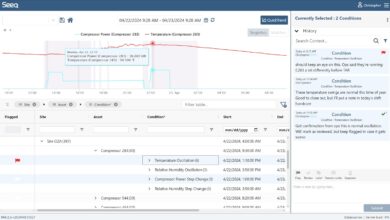The Next Frontier in Data Analytics

Unlocking insights: Contextual intelligence redefines data analytics
In today’s rapidly evolving digital landscape, the volume and complexity of data generated by businesses and individuals continue to grow exponentially. As organizations seek to extract actionable insights from this deluge of information, traditional approaches to data analytics are proving inadequate. Enter contextual intelligence – a revolutionary approach that promises to unlock the full potential of data analytics by adding a layer of context and understanding to raw data.
At its core, contextual intelligence involves analyzing data within the context of its environment, relationships, and interactions. Rather than viewing data in isolation, contextual intelligence seeks to understand the underlying dynamics and nuances that shape the data’s meaning and significance. This holistic perspective enables organizations to derive deeper insights, make more informed decisions, and drive greater value from their data assets.
One of the key drivers behind the rise of contextual intelligence is the growing complexity of data ecosystems. With data sources ranging from structured databases to unstructured text, images, and sensor data, organizations are faced with the daunting challenge of integrating and interpreting diverse datasets. Contextual intelligence offers a solution by providing a framework for understanding how different data sources relate to one another and how they collectively contribute to organizational objectives.
Another factor driving the adoption of contextual intelligence is the increasing demand for real-time insights. In today’s hyper-connected world, organizations need to make decisions quickly and adapt to rapidly changing circumstances. Contextual intelligence enables organizations to analyze data in real-time, allowing them to respond swiftly to emerging trends, identify opportunities, and mitigate risks before they escalate.
Furthermore, contextual intelligence is essential for addressing the limitations of traditional data analytics approaches. While traditional analytics tools excel at processing structured data and performing predefined queries, they often struggle to handle unstructured data and complex relationships. Contextual intelligence bridges this gap by incorporating advanced techniques such as natural language processing, machine learning, and semantic analysis to extract meaning from unstructured data and uncover hidden patterns and insights.
The applications of contextual intelligence are diverse and far-reaching, spanning across industries and domains. In healthcare, contextual intelligence can help providers deliver personalized care by analyzing patient data in the context of their medical history, lifestyle, and genetic makeup. In finance, contextual intelligence can identify fraudulent activities by analyzing transaction data within the context of historical patterns and behavioral indicators. In retail, contextual intelligence can optimize marketing campaigns by analyzing customer data in the context of their preferences, browsing history, and purchase behavior.
However, realizing the full potential of contextual intelligence requires overcoming several challenges. Chief among these is the need for robust data governance frameworks to ensure data quality, integrity, and privacy. Organizations must also invest in technology infrastructure capable of processing and analyzing large volumes of data in real-time while adhering to regulatory requirements and industry standards.
Moreover, organizations must cultivate a culture of data literacy and analytical thinking to empower employees at all levels to leverage contextual intelligence effectively. This requires providing training and education programs to equip employees with the skills and knowledge needed to extract insights from data and apply them to their decision-making processes.\
Conclusion:
Contextual intelligence represents the next frontier in data analytics, offering organizations a powerful tool for extracting actionable insights from complex and disparate datasets. By embracing contextual intelligence, organizations can gain a deeper understanding of their data, unlock new opportunities for innovation, and drive greater value from their data assets. As we continue to navigate the evolving digital landscape, contextual intelligence will play an increasingly important role in shaping the future of data analytics and driving business success.






